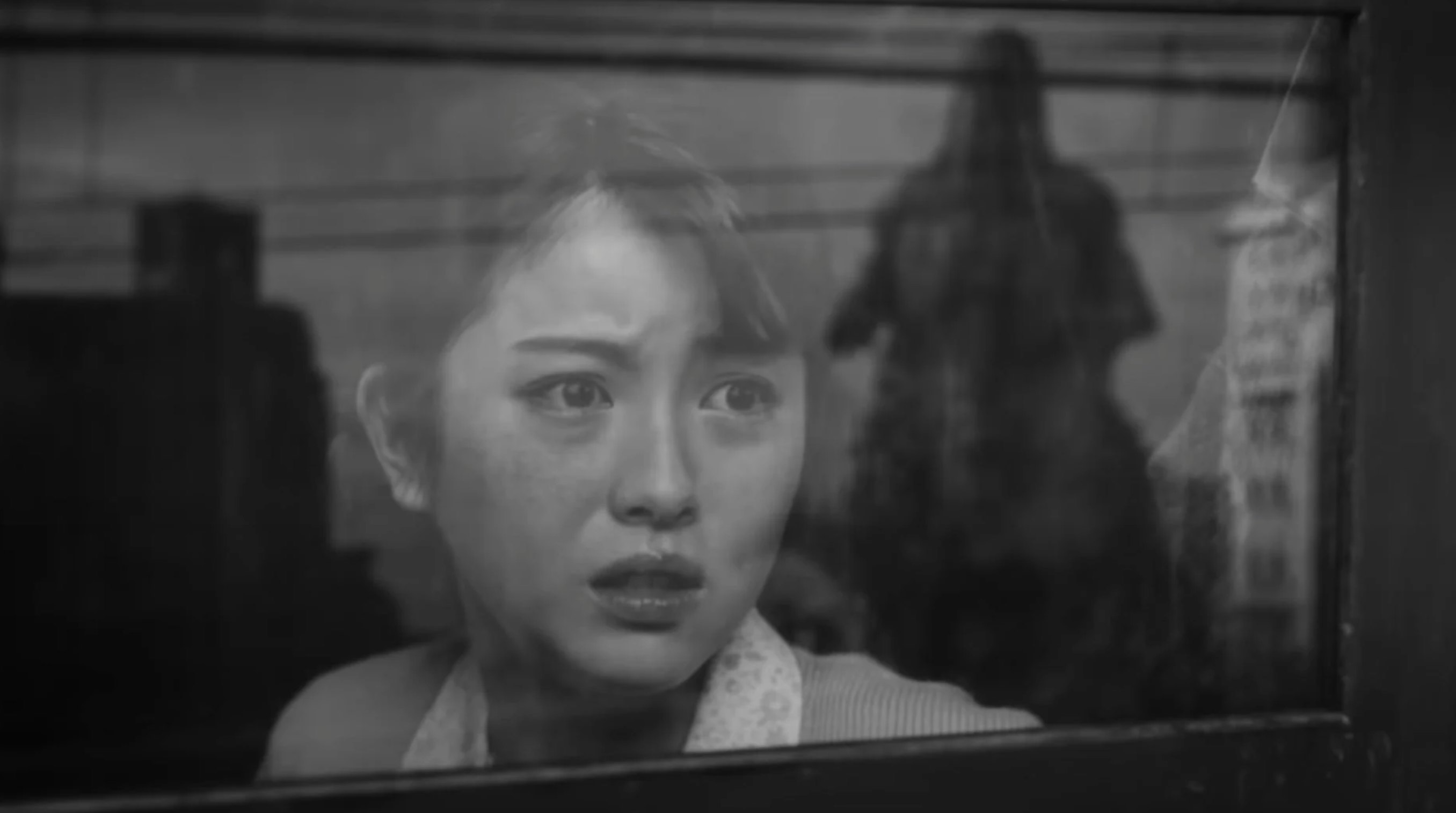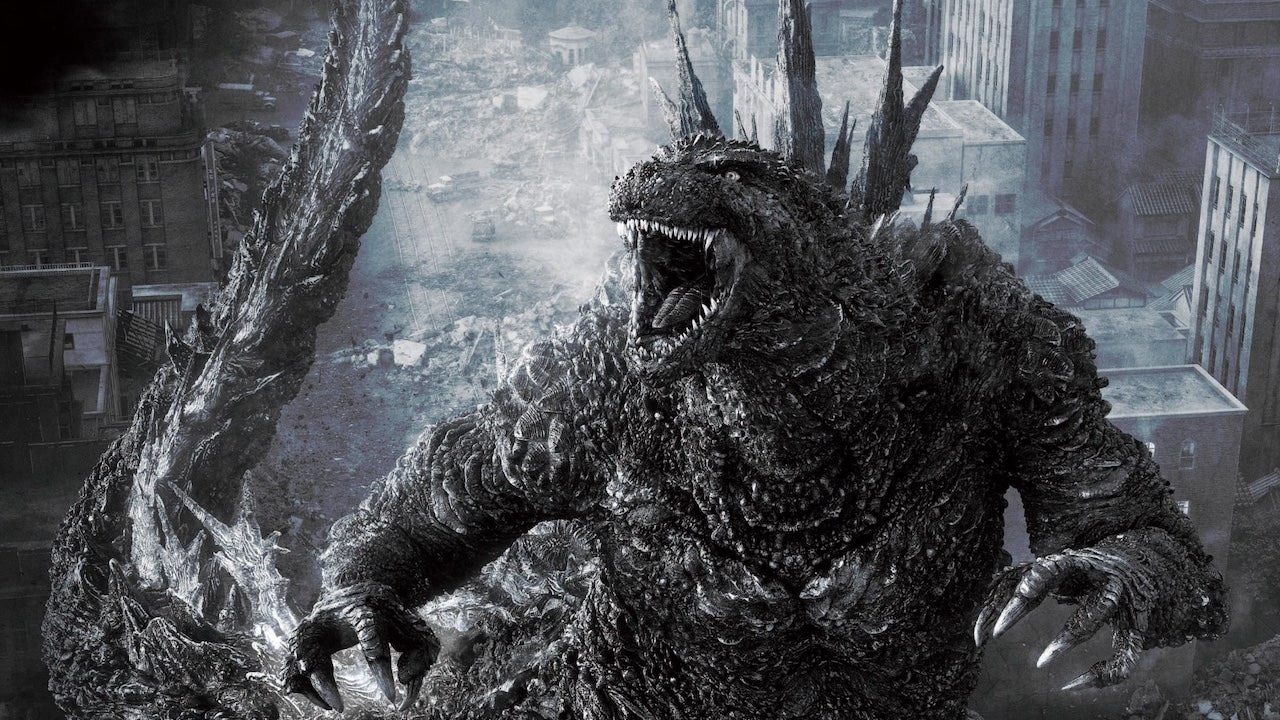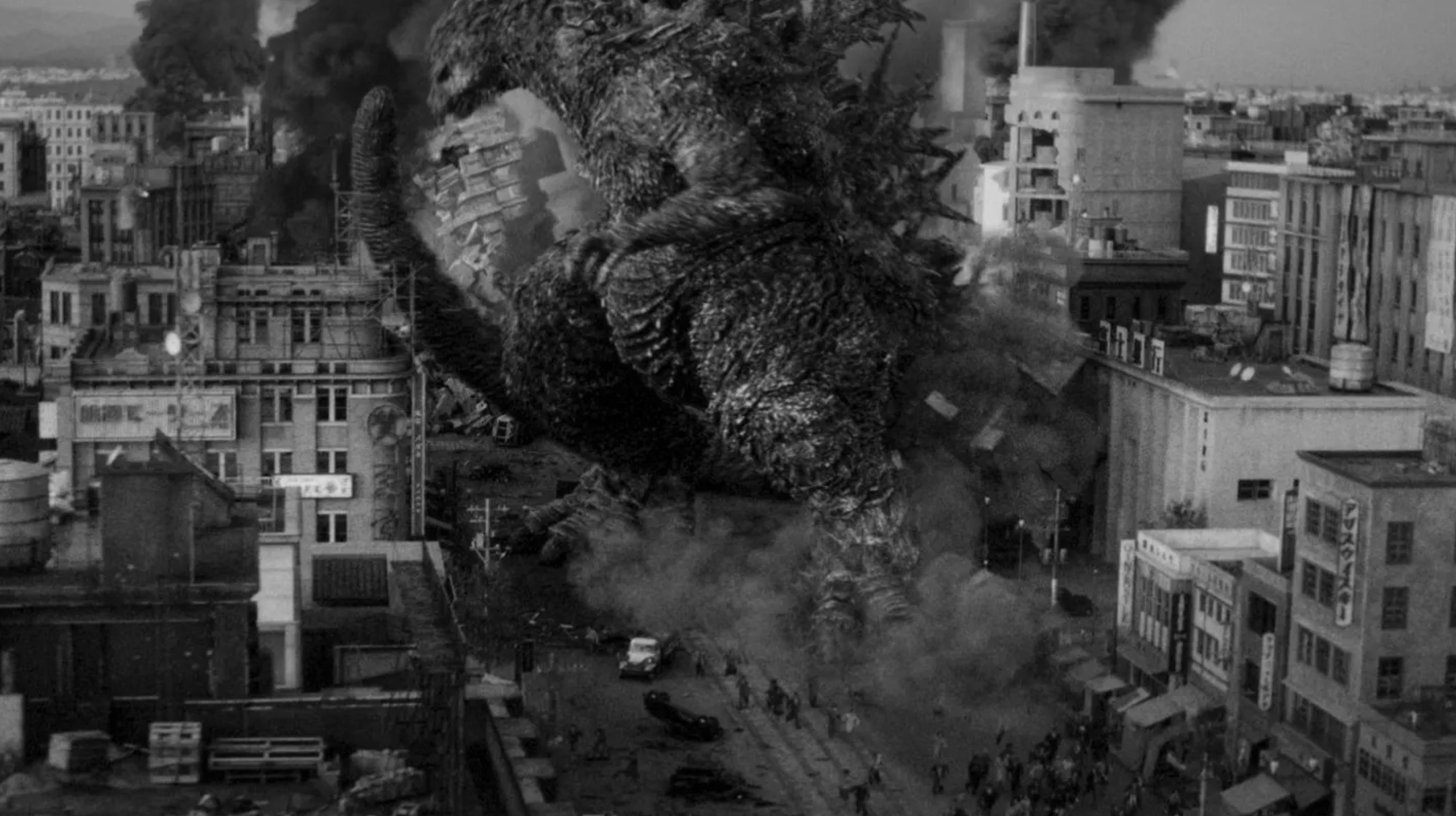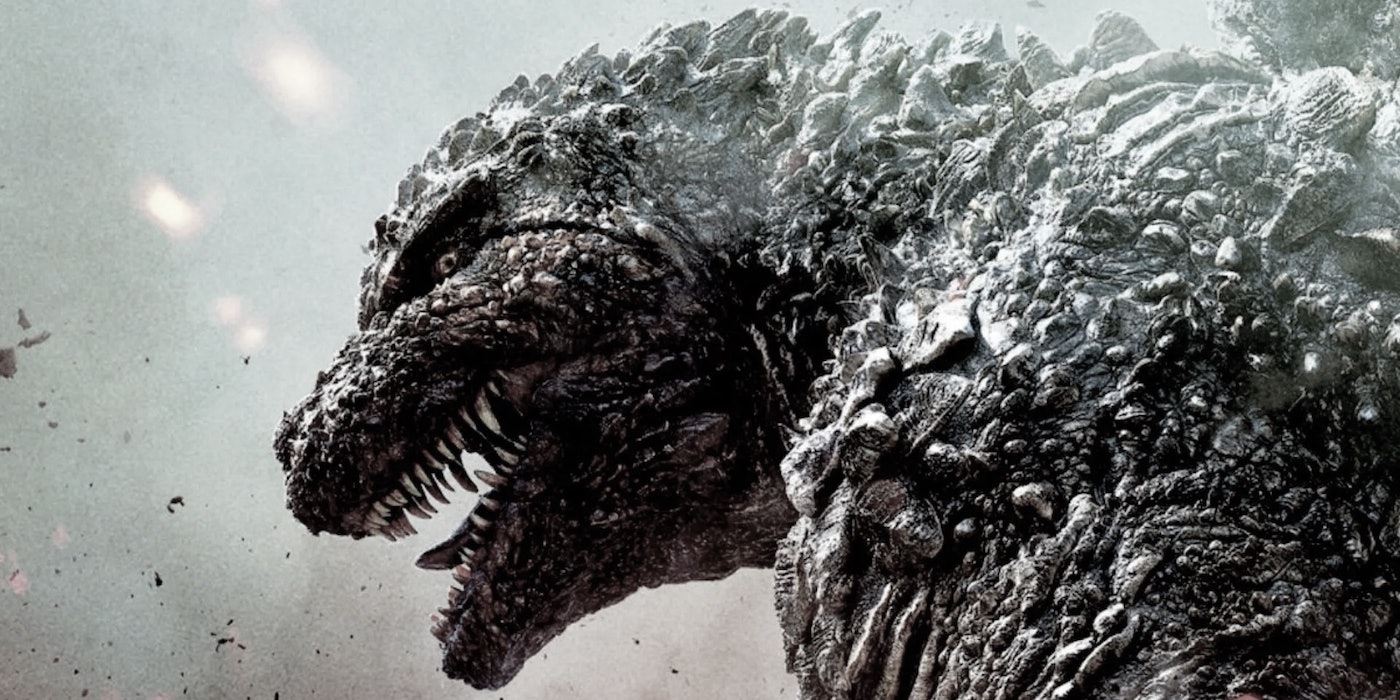
A skyscraper-sized monster looms over the city. He rips trains off their tracks with his clawed hands, decimates entire city blocks with a flick of his tail, and crushes terrified humans underfoot with each heavy step. It’s a horrifying sight, made somehow scarier by the stark black-and-white visuals that fill the screen, emphasizing the terror of a beast like Godzilla while forcing the audience to fill in the blanks for themselves.
While the above could easily describe Gojira (the 1954 sci-fi horror classic that invented a new genre out of nothing but post-WWII trauma), it’s also, somewhat surprisingly, an apt description of the most recent entry in Toho Studio’s historic franchise: Godzilla Minus One Minus Color, a black-and-white version of the Oscar-winning kaiju movie that premiered in theaters in January 2024 and is now streaming on Netflix.

Takashi Yamazaki’s Godzilla Minus One is a retro throwback to the monster’s humble beginnings, which is why a black-and-white version of the film made so much sense. The film follows a kamikaze fighter pilot named Kōichi Shikishima (Ryunosuke Kamiki) who chickens out during battle, instead landing on a small island where Japan’s military is soon decimated by a giant dinosaur-like creature. Shikishima survives and makes it back to mainland Japan, where he lives in a slum, creating a found family of sorts with woman named Noriko Ōishi (Minami Hamabe) and an orphaned baby.
Of course, it’s only a matter of time until Godzilla returns. After the monster unleashes a deadly attack on the Tokyo neighborhood of Ginza (seemingly leaving Ōishi dead among the thousands of casualities), Shikishima joins a ragtag alliance of military veterans in a desperate plot to stop the beast once and for all.

The plot is simple but compelling, injecting a moving human drama into what most fans likely assumed would just be another epic monster blockbuster. But what really sells Godzilla Minus One is its incredible visuals. Made on a shockingly small budget of just $15 million, the movie features multiple stunning set pieces in which the titular kaiju decimates cities and terrorizes anyone who crosses his path. In color, this all looks stunning, but in black and white, it truly becomes art.
The work of transforming Godzilla Minus One into Minus Color fell on colorist Masahiro Ishiyama, who painstakingly edited each and every shot of the two-hour film.
“Rather than just making it monochrome, it is a cut-by-cut,” director Takashi Yamazaki revealed at the time. “I had them make adjustments while making full use of various mattes as if they were creating a new movie.”

Godzilla Minus One Minus Color isn’t actually a new movie, but if you’ve already watched the original either in theaters or on Netflix, it’s an excellent way to re-experience one of the best Godzilla films in years. And if after you’re done you still want more, you can always return to the one that started it all: Gojira.







